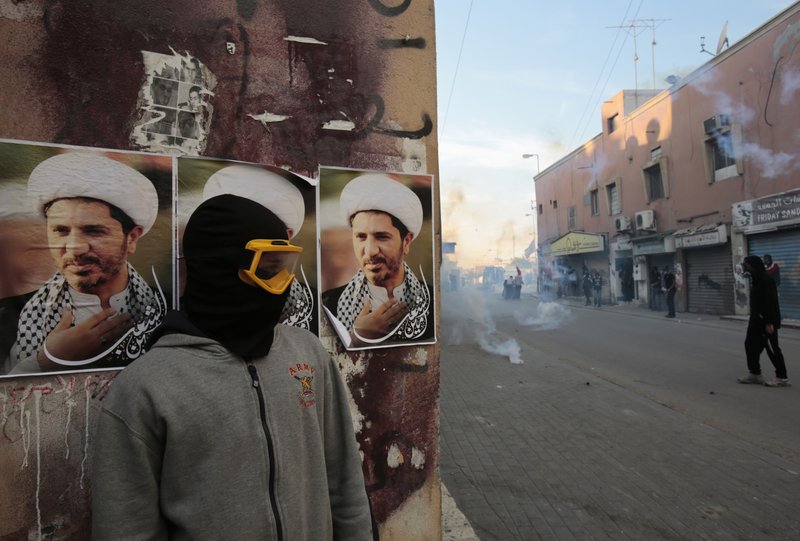DUBAI, United Arab Emirates -- Government changes put in place by Bahraini authorities after widespread anti-government protests four years ago have failed to end serious violations of human rights in the Persian Gulf nation, Amnesty International said in a report released today.
The 79-page report documents what the London-based group calls a "chilling crackdown on dissent" that includes the continued jailing of activists, bans on protests in the capital and instances of torture and other mistreatment of detainees.
Western-allied Bahrain, a small island kingdom that is home to the U.S. Navy's 5th Fleet, was rocked by large protests in February 2011 that were led by the country's majority Shiites seeking greater political rights from the Sunni monarchy.
Bahraini authorities, backed by security forces from nearby Saudi Arabia and the United Arab Emirates, crushed the demonstrations, but low-level unrest continues.
A fact-finding inquiry into the initial uprising called for overhauls in the political system and investigations into purported abuses by security forces. Authorities have since made some changes, including the creation of institutions such as an ombudsman's office at the Interior Ministry, tasked with hearing complaints about police misconduct.
Amnesty said more must be done.
"The international image the authorities have attempted to project of the country as a progressive reformist state committed to human rights masks a far more sinister truth," said Said Boumedouha, the group's deputy director of its Middle East and North Africa Program.
"Four years on from the uprising, repression is widespread and rampant abuses by the security forces continue," he added.
Bahraini officials did not respond to a request for comment on the report.
Amnesty's report includes accounts of purported abuse by police over the past year, including claims by unidentified Bahrainis that they were struck by birdshot or tear-gas canisters.
Police earlier this month detained prominent rights activist Nabeel Rajab over online social media posts related to Bahrain's participation in Saudi-led airstrikes in Yemen. He already was appealing a verdict in a separate case involving earlier Twitter comments deemed insulting to government ministries when arrested.
Other activists and government opponents also are behind bars, including Ali Salman, the head of al-Wefaq, the country's main Shiite opposition group.
He is charged with incitement to forcibly topple the government, an allegation he denies.
The rights group urged Bahrain to take a number of steps, including a sweeping overhaul of the judiciary and the release of those jailed "for lawfully exercising their right to freedom of expression, association or peaceful assembly."
It also called on Bahrain's allies, particularly the U.S., Britain and other European countries, to do more to raise concerns about rights abuses and to push for an overhaul of the justice system.
A Section on 04/16/2015
